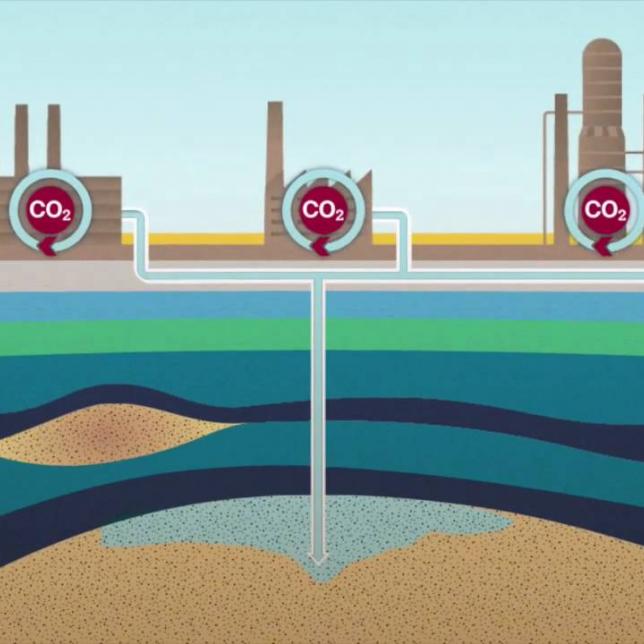Environmental Impacts and Sustainability Considerations of the Carbon Capture and Storage Market
Environmental Impacts and Sustainability Considerations of the Carbon Capture and Storage Market
The increasing concentration of greenhouse gases in the atmosphere has led to a pressing need for innovative solutions to combat climate change and its adverse effects. The Carbon Capture and Storage (CCS) market has emerged as a vital player in the fight against global warming. As CCS technologies continue to evolve and gain momentum, it becomes crucial to assess their environmental impacts and sustainability considerations.
Understanding the Carbon Capture and Storage Market
The Carbon Capture and Storage Market has gained significant attention as a promising solution to reduce carbon dioxide emissions from various industrial processes and power generation. The concept of CCS revolves around capturing CO2 emissions from industrial sources such as power plants and industrial facilities, transporting the captured CO2 to storage sites, and securely storing it underground in geological formations like depleted oil and gas reservoirs.
Environmental Impacts of Carbon Capture and Storage
- Reduced Carbon Emissions: The primary environmental benefit of the CCS market lies in its ability to reduce carbon dioxide emissions significantly. By capturing CO2 at the source, before it is released into the atmosphere, CCS can prevent a significant amount of greenhouse gases from contributing to climate change.
- Air Quality Improvement: Apart from mitigating climate change, CCS technologies also contribute to improved air quality by capturing other harmful pollutants along with CO2 emissions. This results in reduced particulate matter and air pollutants, leading to cleaner air and better public health outcomes.
- Enhanced Land Use: CCS facilities can repurpose existing oil and gas reservoirs for carbon storage, preventing the need for new land use for storage purposes. This reduces the impact on natural habitats and ecosystems, preserving biodiversity.
Sustainability Considerations of the Carbon Capture and Storage Market
- Energy Efficiency: One of the sustainability considerations in the CCS market is the energy efficiency of the carbon capture process. CCS technologies are energy-intensive, requiring a significant amount of power for capturing, transporting, and storing CO2. Implementing smart technology and optimizing processes can help minimize energy consumption and associated greenhouse gas emissions.
- Resource Utilization: CCS facilities often use materials like solvents and chemicals for the capture process. It is essential to ensure responsible resource utilization, including recycling and sustainable sourcing of these materials, to minimize the overall environmental footprint.
- Long-Term Storage Security: The secure and long-term storage of captured carbon is critical to the effectiveness of CCS. Leakage of stored CO2 could have adverse environmental impacts and compromise the overall sustainability of the technology. Rigorous monitoring and assessment procedures are necessary to ensure the safety and integrity of storage sites.
- Lifecycle Analysis: A comprehensive lifecycle analysis of CCS technologies is necessary to evaluate their overall sustainability. This analysis should consider all stages, from the manufacturing of capture systems to transportation and storage, to identify potential environmental hotspots and optimize the technology accordingly.
Smart Technology Integration in the CCS Market
Smart technology plays a crucial role in addressing sustainability considerations and improving the overall efficiency of the Carbon Capture and Storage market. Several areas can benefit from smart technology integration:
- Sensor Networks and Monitoring: Smart sensor networks can be deployed to monitor CO2 capture, transportation, and storage sites continuously. These sensors can detect potential leaks or anomalies promptly, allowing for rapid responses to mitigate environmental risks.
- Data Analytics and Optimization: Advanced data analytics can be employed to optimize the capture and transportation processes, ensuring the most efficient use of energy and resources while minimizing environmental impacts.
- Artificial Intelligence and Machine Learning: AI and ML algorithms can analyze vast amounts of data collected from CCS operations and predict potential issues, enabling proactive decision-making to ensure the sustainability and safety of the technology.
The Carbon Capture and Storage market presents a promising pathway to reduce greenhouse gas emissions and combat climate change effectively. However, to ensure its long-term sustainability and environmental benefits, careful consideration of its impacts is essential. By integrating smart technology and implementing responsible practices, the CCS market can move towards a more sustainable future, contributing significantly to global efforts to mitigate climate change and protect the environment.
